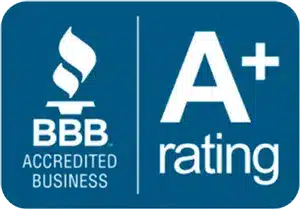Approximately 2.4 million people in the US are living with chronic Hepatitis C. The Hepatitis C Virus (HCV) is a viral infection that affects the liver. It is estimated that 20-30% of individuals infected with HCV may be able to get rid of the virus on their own without any treatment. However, for some, it becomes a chronic infection. We provide early detection and prompt treatment at Equality Health with Hepatitis C testing in Moore, OK to avoid health complications and enhance health outcomes.
Our team of medical professionals provides individualized treatment plans to address your challenges and accelerate your recovery through thorough assessments and close collaboration.

Understanding Hepatitis C: Unlocking The Mysterious Virus
Many people who are newly infected don’t have any symptoms at all, and most of the time don’t know they are infected.
Here’s how HCV can get transmitted to you:
- Sharing needles or other equipment with drug users
- Unsterile medical procedures, such as tattoos or piercings
- Blood transfusions
- Vertical transmission, i.e., from mother to child by birth.
We advise individuals to perform early testing to avoid complications and improve outcomes.
Here’s why you should choose Equality Health to test for Hepatitis C:
- Early Detection: We provide early intervention, suitable treatment, and improved chances of a cure.
- Linkage to Care: We help you receive specialized medical services that let you evaluate the health of your liver and choose the best course of treatment.
- Improved Health Outcomes: At Equality Health, we provide treatment of Hep C that can stop or slow the progression of cirrhosis, liver damage, and liver cancer. Treatment can also stop the risk of transmission to others.
Equality Health prioritizes proactive testing and implements initiatives to raise testing rates. Additionally, to lessen the impact of hepatitis C, we encourage excellent health for all Oklahomans by increasing awareness, enhancing testing accessibility, and ensuring linkage to care.
Methods for Hepatitis C Testing in Edmond, OK
There are two different main tests for Hep C that we use:
Tests for Antibodies
At Equality Health, we perform this type of test to look for antibodies the immune system builds in response to the hepatitis C virus (Anti HCV tests). We use two types of antibody tests:
- Enzyme Immunoassay (EIA): To determine whether blood samples contain a particular protein (antigen or antibody).
- OraQuick HCV: This is a rapid test that looks for antibodies in the blood we get from a finger prick. If you do not understand the OraQuick Hep C test instructions in the home testing kits, always consult with a doctor.
It can take 8-12 weeks after exposure to HCV for this type of test to be positive, so you may need to repeat the test to confirm negative status depending on how long ago you may have been exposed to Hep C.
Tests for Nucleic Acids (NAT)
Our nucleic acid tests detect the Hepatitis C virus’ genetic material, RNA. These are specific tests with high sensitivity that identify viral replication in progress. We use these tests to determine if you have an active infection or not. Our NATs include the following:
- Polymerase Chain Reaction (PCR): To detect viral RNA and measure the viral load
- Transcription-Mediated Amplification (TMA): To detect viral RNA or viral load.
Our Hepatitis C Testing Process in Edmond, OK
Our team of medical professionals undergo a series of testing processes to detect the Hepatitis C virus.
Step 1: Pre-test Counseling
We provide pre-test counseling, which involves instructions about the test, the modes of transmission, and the implications of positive or negative results, before undergoing a Hepatitis C test.
Step 2: Sample Gathering Techniques
The blood sample is the most typical form of Hepatitis C testing. In this test, we will take a blood sample using either a finger prick or drawing blood from a vein in your arm.
Step 3: Laboratory Testing Procedures
The collected blood sample gets sent to the lab. In this initial antibody test, we check an Enzyme Immunoassay (EIA) or a Chemiluminescent Immunoassay (CIA) to screen for the Hepatitis C virus in the blood sample. These tests search for antibodies in the immune system built in response to the Hepatitis C virus. You may require additional blood work if the antibody test shows positive results.
Remember: We return antibody test results in a few minutes to a couple of days, whereas confirmatory NAT results can take a week or longer.
Step 4: Counseling and support following a Hepatitis C test
After learning the test results, we provide:
- Post-test counseling and support.
- Discussing implications of test results.
- Potential next steps.
- Available Hepatitis C treatment options.
If you test positive for hepatitis C, you will require further testing to determine the appropriate course of treatment. If you face psychological effects from the diagnosis, we provide emotional support and resources to help you.
Our medical professionals help you to understand the test results properly. We will further educate you about Hepatitis C prevention and treatment options and encourage a healthy lifestyle moving forward.
Who Should Get Tested for Hepatitis C?
- All adults over 18 should be tested at least once in their lifetime
- Pregnant women should be tested during each pregnancy
- Injection drug users need testing regularly. Previous IV drug users should also be tested, even if it has been years since you last used
- HIV positive individuals
- Have abnormal liver tests
- People 65 and older and people who received donated organs or blood prior to 1992.
Hepatitis C Infection Risk Factors
- Sharing needles and other drug injection equipment
- Vertical transmission or babies born to HCV-positive mothers
- Health care exposures
- Sex with an infected person
- Unprofessional tattoos and piercings
- Sharing razors, toothbrushes, or other personal hygiene items
Hepatitis C Test Results Interpretation
- Positive Test Result: Indicates the presence of virus-specific antibodies or viral genetic material. We perform additional testing to confirm an active infection and determine whether treatment is necessary.
- Negative Result: Implies that hepatitis C infection is likely absent. In this case, we advise repeating testing if you were exposed recently because antibodies don’t form for several weeks.
- Indeterminate Result: We perform additional testing like repeating the same tests or another alternative testing method to obtain a conclusive result.
If you are diagnosed with Hepatitis C, we will give you the proper medical attention by providing you access to specialized therapies like antiviral drugs to prevent liver damage.
Our medical professionals can keep track of the disease’s development, spot any potential complications, and administer the proper interventions.
Follow-up Testing and Confirmatory Tests
We provide routine follow-up care, guaranteeing ongoing assistance, information, and necessary interventions to advance general well-being and liver health.
- Testing for RNA: If the initial antibody test is positive, we perform a nucleic acid test, or NAT, to look for viral genetic material (RNA). This test identifies the viral load and verifies the presence of an active infection, informing treatment choices.
- Genotype Testing: Once the test confirms an active infection, we do genotype testing to determine the particular strain (genotype) of the hepatitis C virus. With the results of these tests, we advise the best treatment options for you.
At Equality Health, we provide prevention-focused care, prioritize your health, and provide the required treatment facility and guidance.
Get the Support You Need in Moore: Access Our Resources Today
Undergoing Hepatitis C testing can be a challenging and emotional experience. At Equality Health, we understand the importance of providing comprehensive support to individuals throughout the testing process and beyond.
Our dedicated healthcare professionals for hepatitis C testing in Moore, OK will offer guidance, answer your questions, and address your concerns regarding testing, diagnosis, and treatment options.
We can also provide referrals to experienced healthcare professionals and experts in Moore who know about the latest advancements in Hepatitis C treatment, along with HIV testing, HIV treatment, STD testing, STD treatment, and PrEP for HIV prevention in Moore.
Moreover, we also care about patients’ financial concerns regarding treatment. That is why we welcome everyone, whether or not you have health insurance. Our primary concern is the well-being of our patients, and we are here to assist you.
For more information or to schedule an appointment for Hepatitis C testing in Moore, contact us now at our Hep C testing clinic in Moore, OK, at (405) 761-2762.
Frequently Asked Questions (FAQs)
Equality Health is the place to go if you’re searching for a reputable medical facility to get tested for Hepatitis C. In addition to pre-test counseling, sample collection, laboratory testing, and post-test counseling, we also offer complete Hepatitis C testing services. As part of our Hepatitis C testing package, we also offer people counseling, emotional support, and private Hepatitis C testing.
The average cost of hepatitis C testing will vary based on insurance coverage. However, at Equality Health, we do provide free rapid Hep C antibody tests. If the test is positive, you will require additional testing.
The tests for the Hep C test are 100% accurate if they are done within the appropriate testing window. First, to detect the presence of the virus, you should do an antibody test. If it’s positive, your body has been exposed to the virus at some point. Additionally, the RNA test determines how much virus is in your blood, and the genotype test identifies the type of virus.
If you test positive for the Hepatitis C Virus, you should see your doctor or other healthcare professional to talk about your treatment options and any potential follow-up tests. Most hepatitis C patients can be cured with available treatments in 8 to 12 weeks. When you are first diagnosed, it’s important to educate yourself on the symptoms of hepatitis C and any potential risk factors.
Yes, Hep C tests can be done privately. This means that neither the service provider nor the client may discuss the results with anyone else without the subject’s express permission, with the exception of when test results must legally be reported. Confidentiality also applies to any other personal information, such as details about sexual behavior and drug use. The confidentiality of medical records requires special training and sensitization for test providers and other health professionals.


